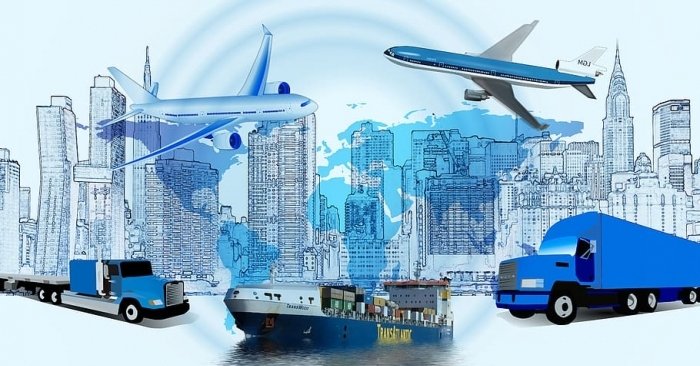In today’s fast-changing business landscape, automating trade operations is a strategic imperative. Leading enterprises are adopting intelligent automation systems to streamline everything from data collection and analysis to trade execution software and settlement. This transforms manual, repetitive processes prone to human error into automated workflows that drive efficiency, insight, and a competitive edge.
The benefits of automating trading functions are multifaceted. Machine learning and AI enhance the efficiency and accuracy of transactions through automation. It unlocks the scalability to handle growing trade volumes with ease. Automated compliance and reporting reduce risk. And accumulated data reveals valuable insights for strategy.
First-mover advantage awaits companies that rapidly adopt next-generation trade automation services. They’ll pull ahead of laggard competitors still relying on outdated manual processes. Automation delivers improved agility, cost savings, and future-proofing. In essence, trading companies that automate intelligently secure their competitive footing for long-term success.
The verdict is clear – trade processing automation equals a competitive advantage. Scalability and streamlined operations separate leaders from laggards. In a disruptive era, automating core trade functions is no longer optional but an imperative. Forward-thinking enterprises are embracing automation today to drive efficiency, unlock growth, and own the future. The choice is binary – automated trading systems now or risk falling behind.
The choice ahead is binary: automate now or risk falling behind. Integrating intelligent trade automation equals unlocking a proven, lasting competitive advantage. Companies worldwide must keep pace with change by optimizing trade functions through automation.
So, automating key trade operations is a need, not an option, for competitiveness today. Companies that embrace trade settlement automation will operate with precision, speed, and elevated decision-making. Those that delay will watch their rivals pull ahead. A business seeking to survive nonstop disruption must implement trade automation. The time to deploy these technologies is now.
Trade Automation: The Key to Outpacing Rivals in Our Disruptive Era
In today’s highly disruptive business landscape shaped by nonstop innovation. Trade automation has become mission-critical. Leading enterprises are embracing new trading technology solutions like:
- Algorithmic trading solutions and electronic trading automation
- Financial automation services
- Stock trading automation
- Automated trade order management systems
- And trade settlement automation.
As a result, this will optimize operations, reduce costs, and power data-driven decision making. Companies leveraging these cutting-edge trade automation solutions position themselves to react swiftly to:
- Market changes
- Identify and seize chances for growth
- And eventually outperform the opposition.
The Imperative to Automate
The manual processes underlying trades are no match for today’s breakneck speed of change. Relying on people to execute trades, file compliance forms, and pore over data is proving too sluggish, mistake-prone, and hard to expand.
Trade automation is the key to unlocking the velocity, precision, and adaptability modern markets need. Leaders are future-proofing their edge by using advanced trading tech to automate core functions..
Key Benefits of Trade Automation
Automation delivers manifold upsides:
- Increased efficiency – Algorithmic trading and e-trading accelerate workflows to execute trades faster. This handles ballooning volumes and frequencies.
- Lower costs – Automation shrinks headcounts for routine work. It also minimizes expensive errors. Per McKinsey, financial automation can cut processing costs by up to 25%.
- Improved insights – Accumulated trade data analyzed by AI reveals opportunities and fine-tunes strategies.
- Enhanced control – Order management systems drive automated audit trails and compliance, reducing operational and regulatory risks. Settlement automation also helps.
- Scalability – Systems readily manage spikes in volatility and volume.
Emerging Technologies Powering Advancements
Innovative technologies are catalyzing a new generation of intelligent trade automation:
Cutting-edge technologies are catalyzing intelligent automation:
- RPA tools quickly automate repetitive manual tasks through configuration.
- AI and machine learning uncover patterns in complex data, enabling predictive analytics.
- Blockchain and distributed ledgers facilitate trusted sharing between partners.
- Cloud computing provides scalability to handle processing fluctuations.
Implementation Best Practices
Careful change management is key when migrating to automated systems:
- First, assess processes to ID automation potential, starting with high-volume, high-risk areas.
- Next phase of implementation after thorough piloting. Provide training and communication.
- Moreover, use process mining to analyze and refine automated workflows.
- Closely track metrics like processing time, error rate, and uptime.
- Continually expand the automation scope and upgrade capabilities.
Gaining the First-Mover Advantage
Early adopters gain a first-mover advantage. Quickly transitioning to automated systems unlocks major efficiency and cost benefits. Laggards will rapidly fall behind as disruption speeds up.
Building a Future-Ready Trade Operation
Looking ahead, a relentless focus on automation and integration must be central to any trade organization’s strategy. Partnering with automation and AI specialists accelerates capability building. For trading firms, automation is the lifeblood of a future-proofed, competitive operation.
Also Read, FedEx and UPS Will Soon Be Flying Pilotless Planes. How Safe Are They?
Trading Operations Need to be Automated Now!
In today’s fast-changing digital landscape, trading automation is no longer just a perk – it’s essential. Intelligent automation delivers the speed, control, insight, and efficiency vital to trading operations. From algorithms to settlement, automation is now mission-critical.
Early adopters that transform processes quickly outperform slower, less agile competitors. For modern trading firms seeking a sustained edge, the mandate is clear: the time to deploy these transformative technologies is now.
In an era of disruption, automation is the key to achieving top speeds, maximum oversight, strategic insights, and workflow efficiencies in trading. Trading enterprises that automate early reap the rewards of outperforming their laggard rivals. For any firm chasing an enduring competitive advantage, the imperative rings loud and clear – adopt automation today.
Partner with Lading Logistics for best-in-class automation tailored to your trade operations. The future belongs to companies that automate trading functions intelligently today.
FAQs:
- Why is trade automation crucial in the modern business world?
Trade automation enhances efficiency, reduces costs, and provides a competitive edge in a rapidly changing business landscape.
- What are the key benefits of implementing trade automation solutions?
Trade automation increases efficiency, lowers costs, improves insights, enhances control, and enables scalability.
- Which technologies are powering advancements in trade automation?
Innovative technologies like RPA, AI, blockchain, and cloud computing are driving intelligent trade automation.
- How should companies approach the implementation of trade automation systems?
Companies should start by assessing processes, providing training, using process mining, tracking metrics, and continually expanding automation capabilities.
- Why is being an early adopter of trade automation systems advantageous?
Early adopters gain efficiency and cost benefits, while laggards risk falling behind as disruption accelerates.



